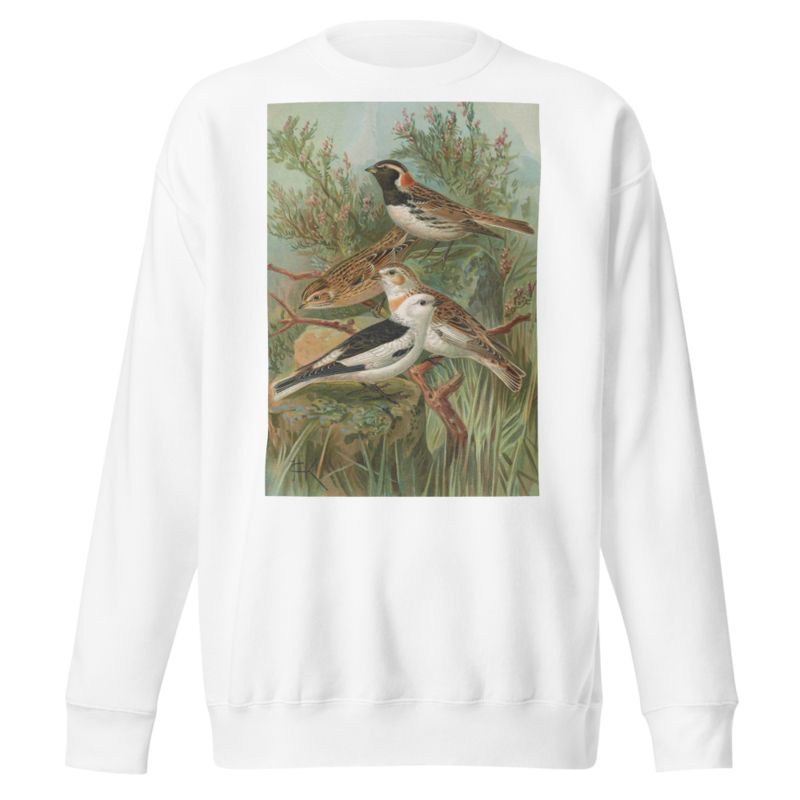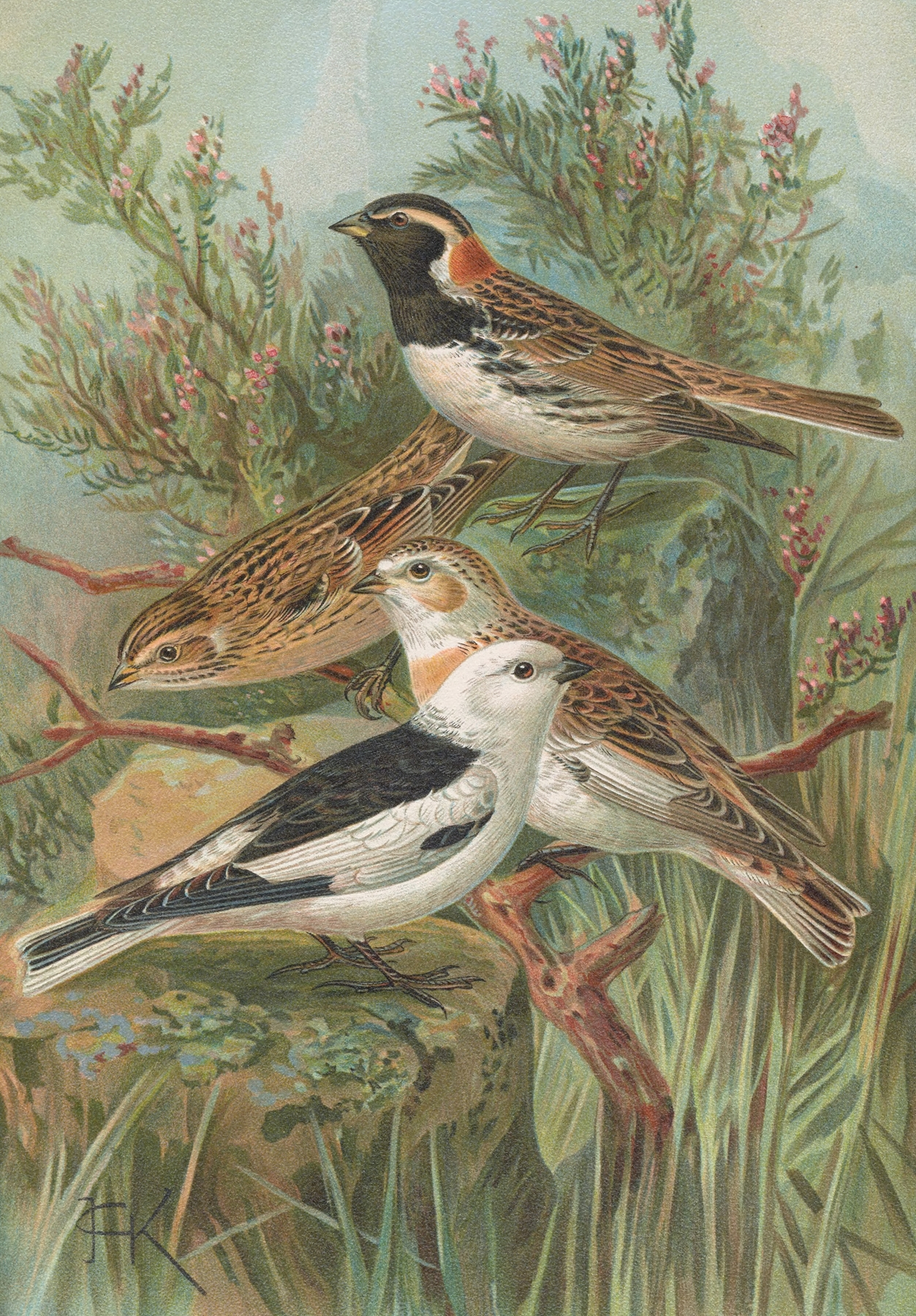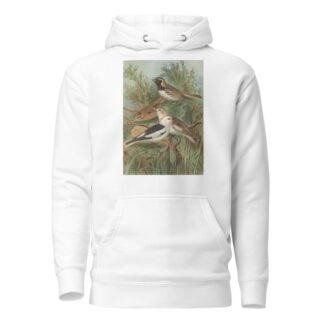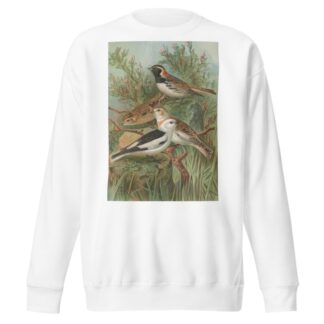Description
Calcarius lapponicus, Plectrophenax nivalis by Johann Friedrich Naumann printed on a Sweatshirt
About the Sweatshirt
Regular fit
Standard length, the fabric easily gives into movement
Comfortable
The fabric and fit of this item are extra comfy
Tear-away tag
Easily removable tear-away tag that allows you to add a custom inside label
This Unisex Premium Sweatshirt has a classic crew neck, flattering unisex fit, and soft 100% cotton exterior.
- 100% cotton face
- 65% cotton, 35% polyester
- Charcoal Heather is 55% cotton, 45% polyester
- Fabric weight: 8.5 oz./yd.² (288.2 g/m²)
- Tightly knit 3-end fleece
- Side-seamed construction
- Self-fabric patch on the back
- Double-needle stitched rib collar, cuffs, and hem
- Tear-away label
Johann Friedrich Naumann (1780 – 1857)
Johann Friedrich Naumann was a German scientist, engraver, and editor. He is regarded as the founder of scientific ornithology in Europe. He published The Natural History of German Birds (1820–1844) and The Eggs of German Birds (1818–1828). His father Johann Andreas Naumann (1744–1826) was a naturalist, and his brother Carl Andreas Naumann (1786–1854) was also an ornithologist.
The German ornithological society named its journal Naumannia. The lesser kestrel (Falco naumanni) is also named for him.
Johann Friedrich Naumann was born in Ziebigk, about 10 km southeast of Köthen, on 14 February 1780, as the son of Johann Andreas Naumann, a well-known natural historian. After attending school at Dessau, he returned home and devoted himself to the study of agriculture, botany, geology, and ornithology. His later work was devoted more exclusively to the ornithology of Germany. In 1822 he published his Naturgeschichte der Vögel Deutschlands (13 vols, Leipzig (1822), illustrated with plates Naumann engraved himself. He was also the author of many other ornithological works.
In 1821, Naumann sold his bird collection to Frederick Ferdinand, Duke of Anhalt-Köthen for 2,000 Taler. He was appointed curator of the ducal collection in the Ferdinandsbau in Schloss (Castle) Köthen, which has been accessible to the public since 1835.






Reviews
There are no reviews yet.